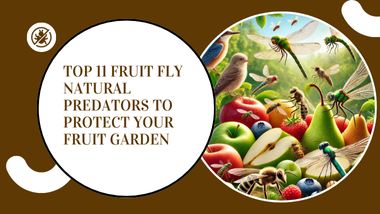
You don’t always need toxic insecticides to deal with pests. Instead, you can rely on fruit fly natural predators for effective fly control in your garden.
Fruit flies are among the most common pests that plague our gardens. These tiny insects, like the Queensland fruit flies and Mediterranean fruit flies, can cause significant damage by infecting ripening fruits and vegetables, making them susceptible to infestations.
Female fruit flies lay hundreds of eggs beneath fruits, and once the larvae (or maggots) hatch, they burrow into the fruit, consuming it from the inside out.
The warmer months make this problem even worse, as the fly population tends to surge.
Let’s explore these fruit fly natural predators and how they can protect your fruits.
1. Ladybugs: Effective Fruit Fly Natural Predators
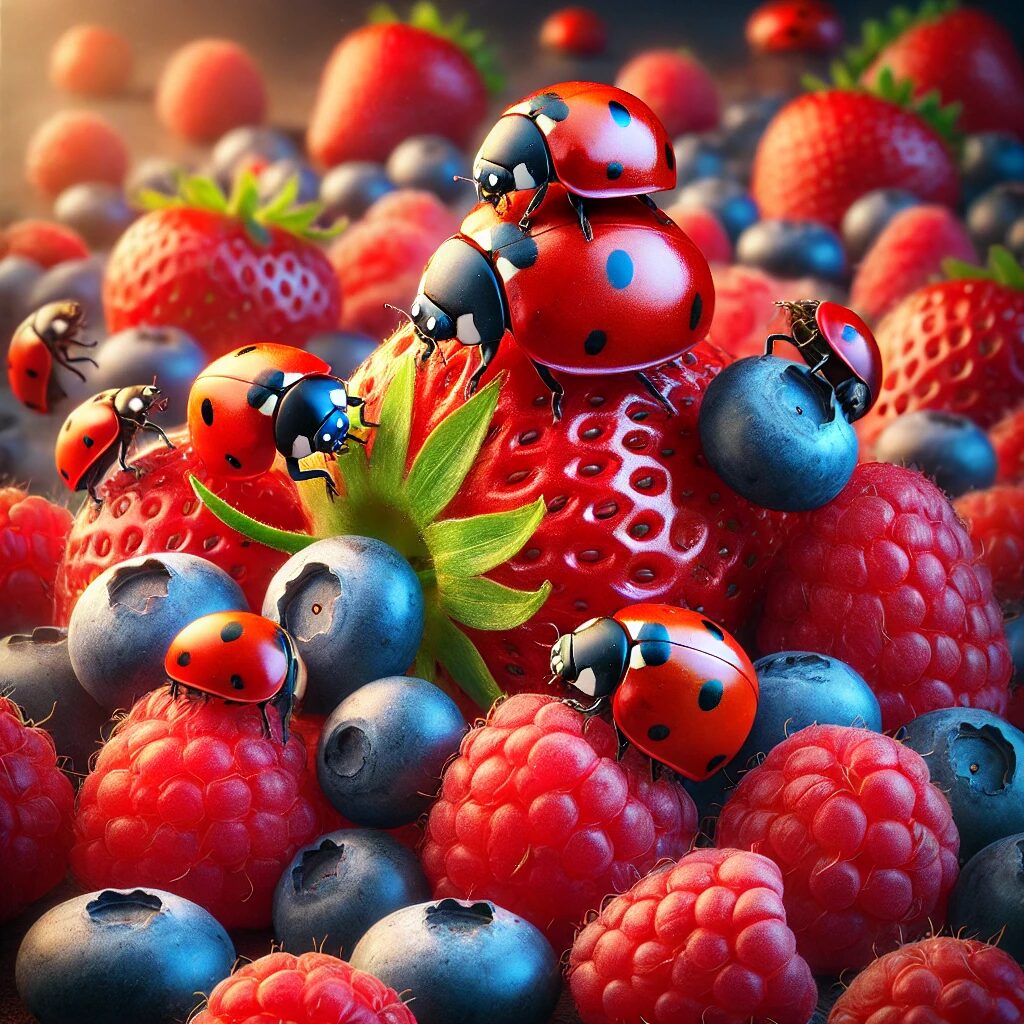
- Role: Ladybugs are well-known garden allies that help control fruit flies and other pests.
- Fruits Protected: Strawberries, Raspberries, Blueberries
- How They Help: Ladybugs are natural predators that consume fruit flies, including larvae, reducing infestations effectively. These insects love to prey on soft-bodied insects, making them ideal for protecting berry patches.
2. Spiders: Nature’s Web of Defense
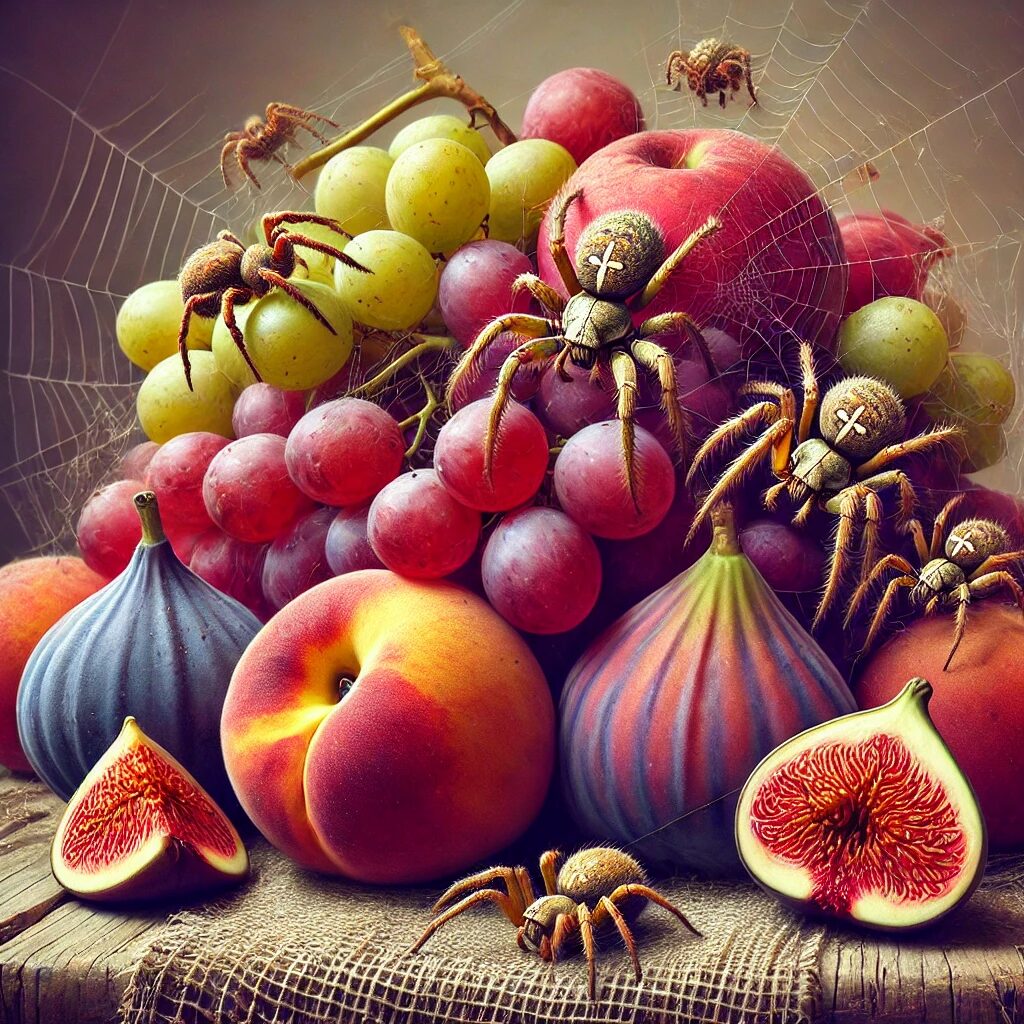
- Role: Spiders are perhaps the most efficient predators of flies. They spin sticky webs that trap buzzing fruit flies.
- Fruits Protected: Grapes, Figs, Peaches
- How They Help: Spiders, being natural arachnids, set up their webs in strategic places like beneath trees or around fruit plants. Once the fruit flies are caught, they are unable to escape, which helps control the fruit fly population in the garden.
3. Dragonflies: Aerial Hunters
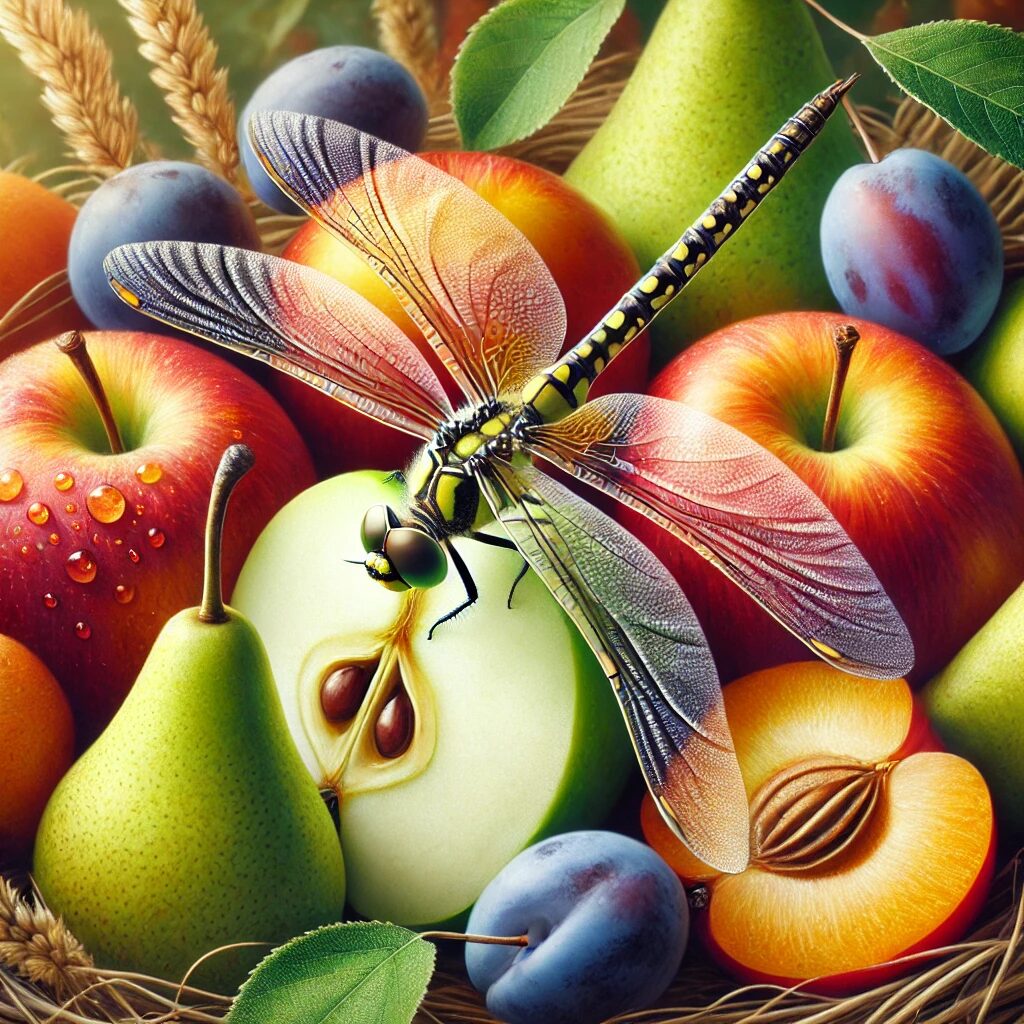
- Role: Dragonflies are agile predators that catch fruit flies in mid-air.
- Fruits Protected: Apples, Pears, Plums
- How They Help: Dragonflies patrol the garden, targeting flying pests like fruit flies. Their impressive speed allows them to capture fruit flies as they buzz around orchard fruits. If you’re lucky enough to have a pond, dragonflies are likely to be present, helping to manage pests naturally.
4. Parasitic Wasps: Tiny Guardians
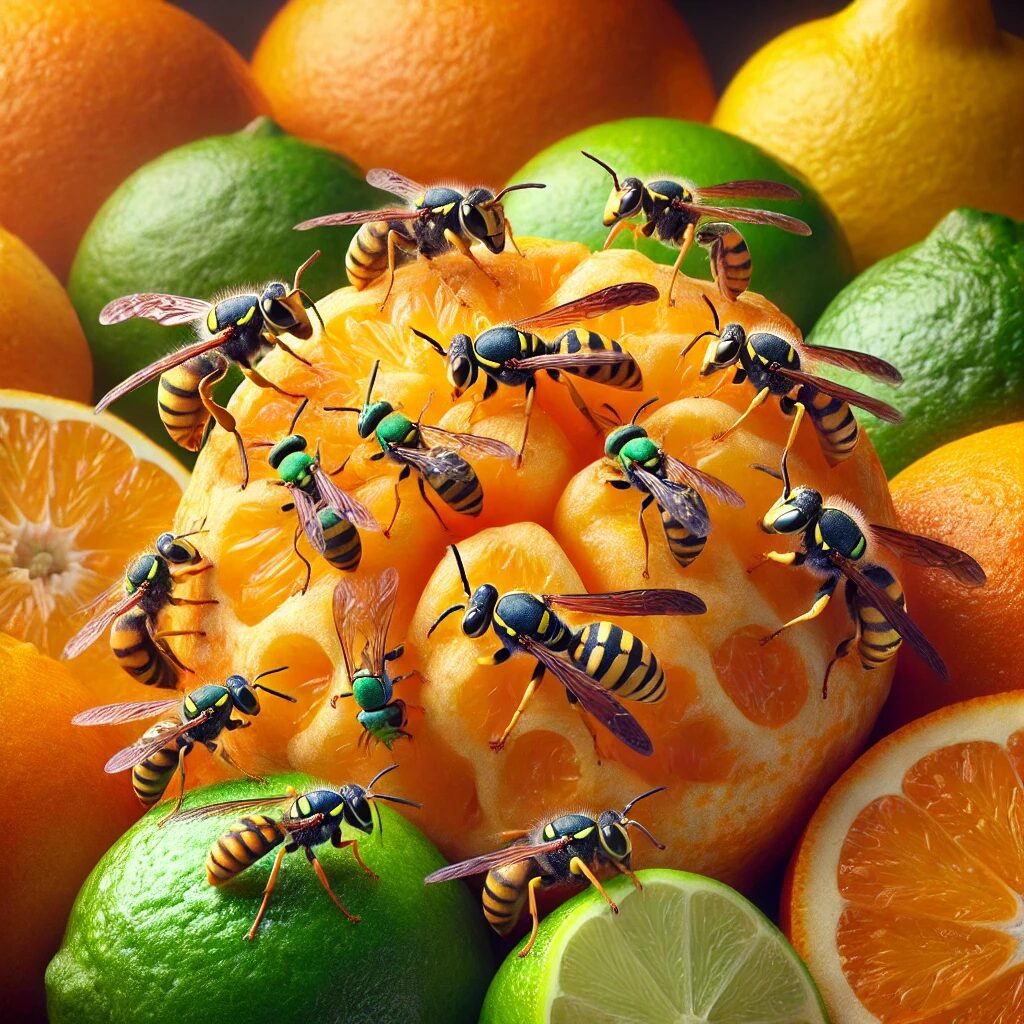
- Role: Parasitic wasps are natural enemies of fruit flies, particularly targeting the larval stage.
- Fruits Protected: Citrus (Oranges, Lemons, Limes)
- How They Help: Parasitic wasps lay their eggs in fruit fly larvae and fly pupae, parasitizing them. The wasp larvae feed on the fly larvae, effectively stopping their development. Since these wasps are small and cannot sting, they’re harmless to humans and animals, making them an ideal biological control method.
5. Lacewings: Nature’s Pest Control
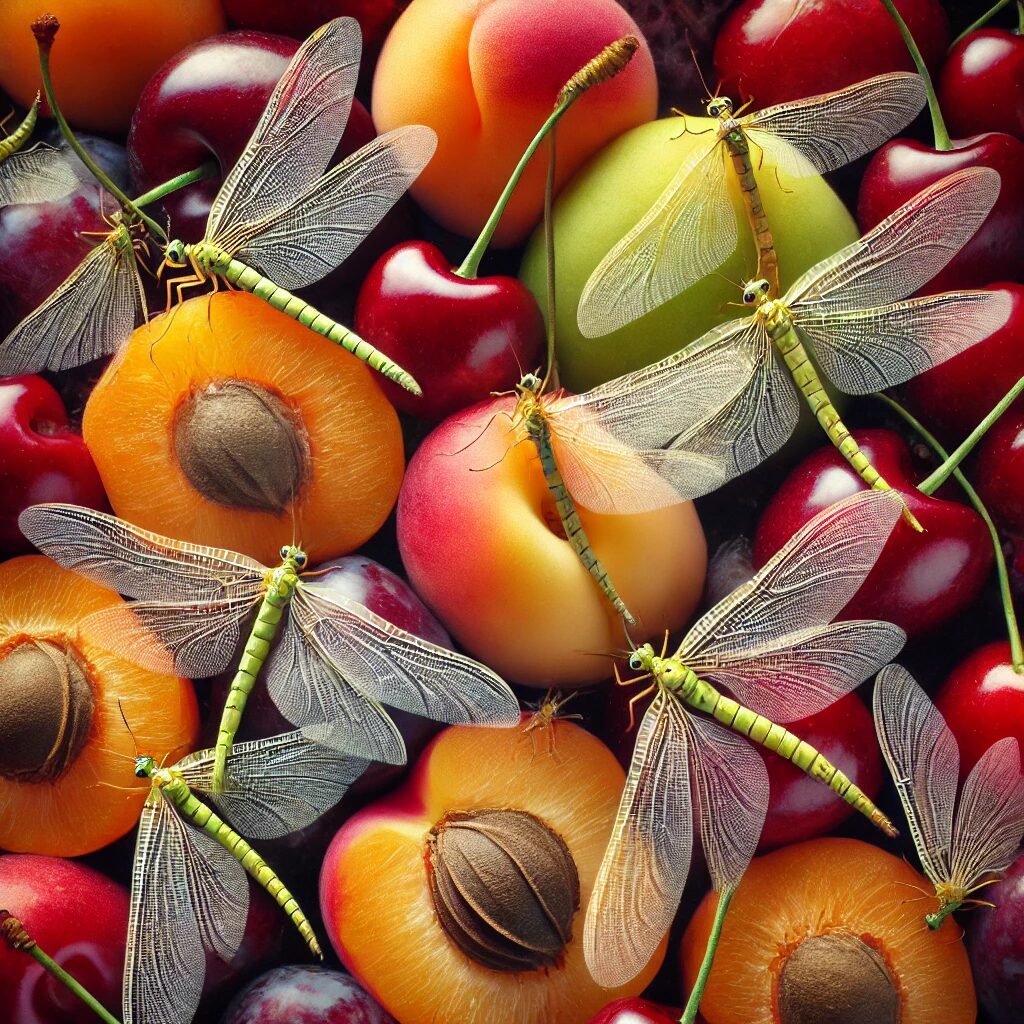
- Role: Lacewing larvae, often called “aphid lions,” are predators of various garden pests, including fruit flies.
- Fruits Protected: Cherries, Plums, Apricots
- How They Help: Lacewing larvae consume fruit fly larvae, effectively controlling pest populations. They are beneficial insects for any garden, especially those with fruit trees.
6. Birds (Such as Swallows): Fruit Fly Natural Predators
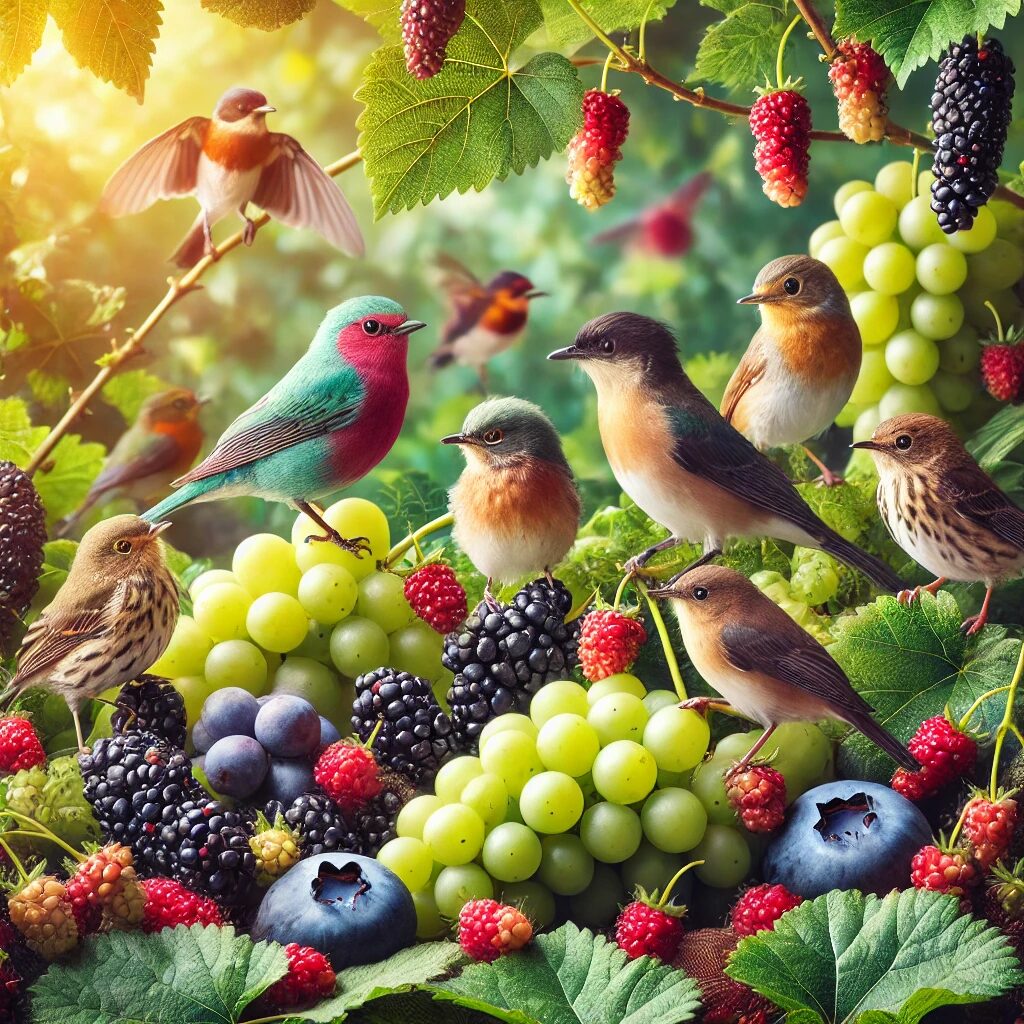
- Role: Birds like swallows are natural predators that feed on adult fruit flies.
- Fruits Protected: Mulberries, Grapes, Berries
- How They Help: Birds play an essential role in managing the fly population. They hunt adult fruit flies, helping keep the garden free from pests. Providing a habitat, such as birdhouses or water sources, can help attract birds to your garden.
7. Predatory Mites: Tiny Helpers
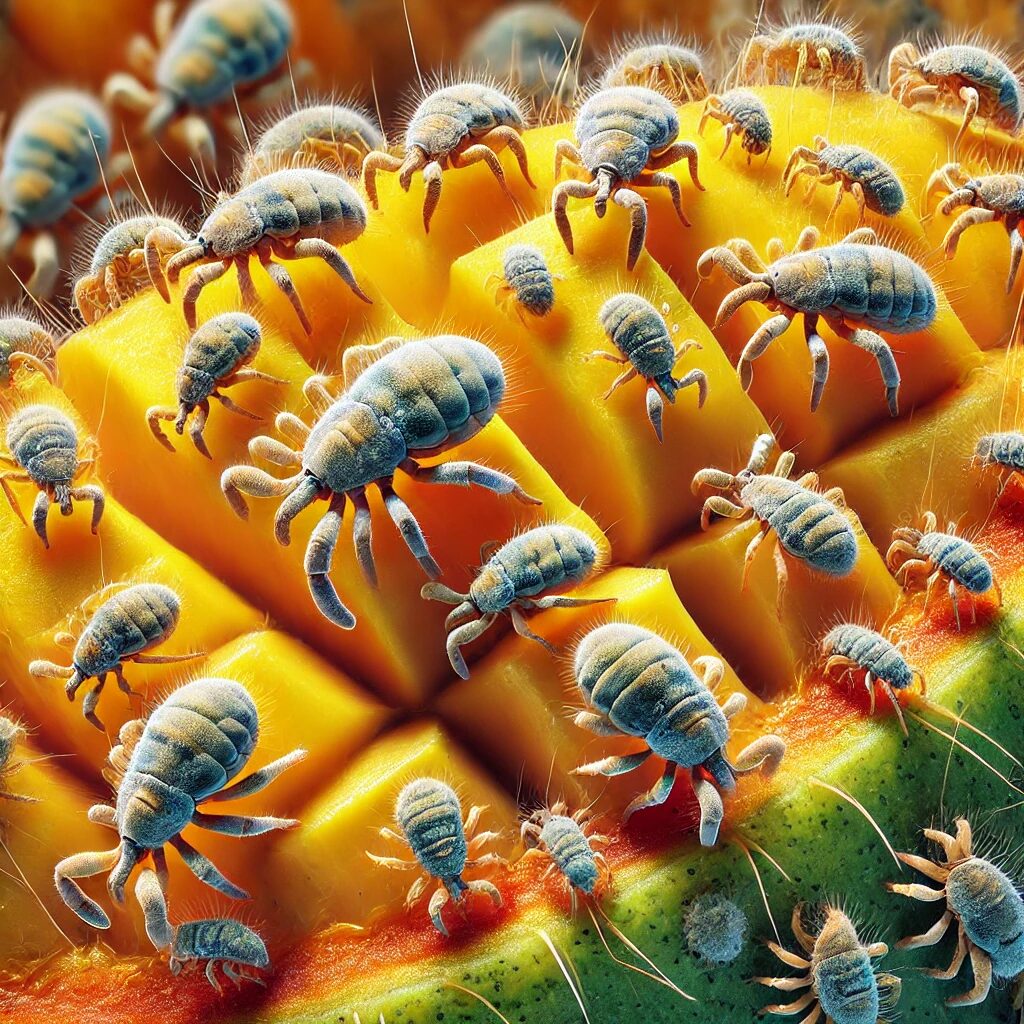
- Role: Predatory mites feed on fruit fly larvae, particularly those beneath the soil.
- Fruits Protected: Tropical Fruits (Mangoes, Papayas)
- How They Help: Mites are tiny but effective predators that attack larvae before they can pupate. These beneficial mites help prevent infestations by targeting the breeding sites of fruit flies.
8. Ants: Ground-Level Fruit Fly Natural Predators
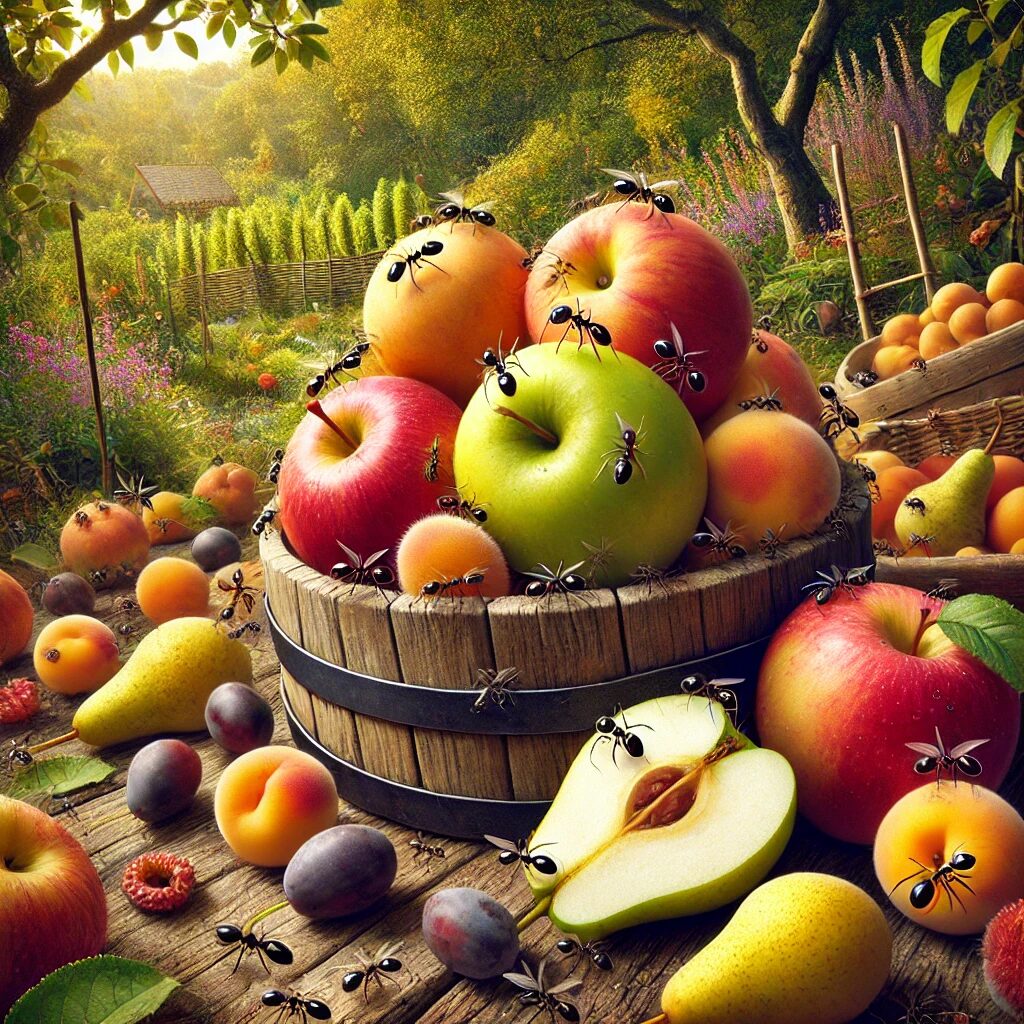
- Role: Ants are ground-level predators that target fruit fly eggs and larvae.
- Fruits Protected: Various Fruits (Fallen Fruits, Garden Produce)
- How They Help: Ants forage for fly eggs, maggots, and pupa near fallen fruit. They’re particularly helpful in areas where fruit flies tend to lay their eggs, such as beneath trees and around rotting fruits.
9. Hoverflies: Garden Allies
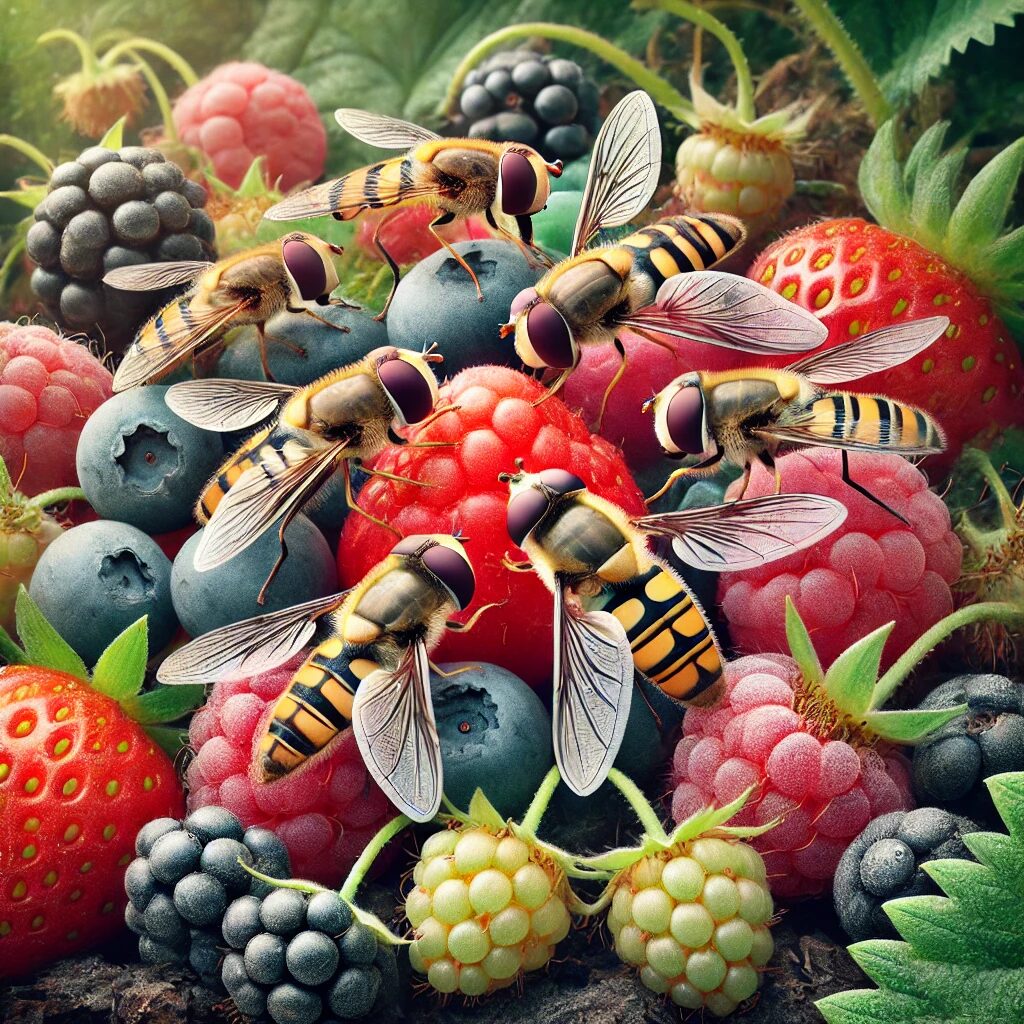
- Role: Hoverflies are beneficial insects whose larvae feed on fruit flies.
- Fruits Protected: Strawberries, Raspberries, Other Berries
- How They Help: Hoverflies lay their eggs near fruit fly infestations. Once the larvae hatch, they consume fruit fly larvae, reducing their population. Hoverflies are easy to attract by planting flowering plants that produce nectar.
10. Ground Beetles: Nocturnal Pest Controllers
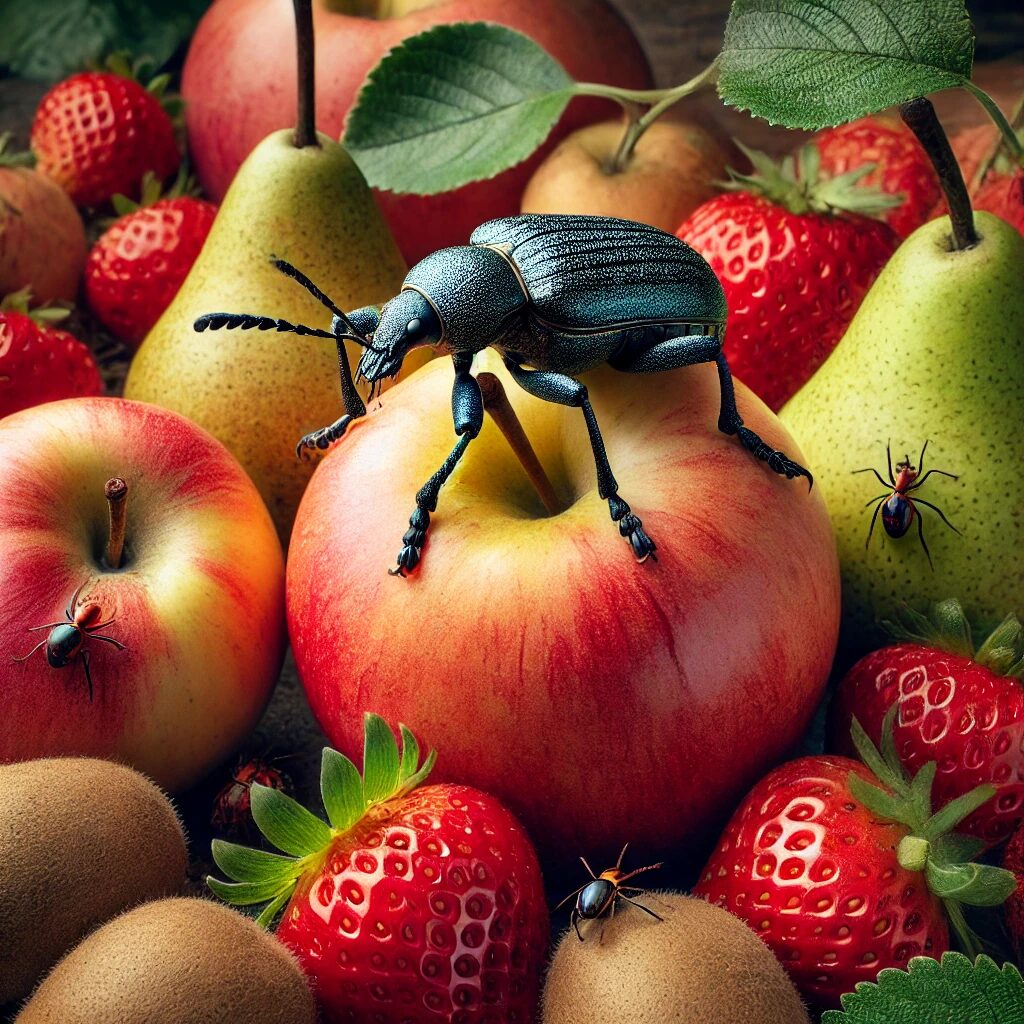
- Role: Ground beetles are nocturnal hunters that feed on fruit fly larvae.
- Fruits Protected: Apples, Pears, Strawberries
- How They Help: Ground beetles hunt for larvae at night, providing an added layer of pest control. They stay close to areas where fruit flies reproduce, making them effective in reducing fly infestations.
11. Praying Mantises: The Stealthy Predators
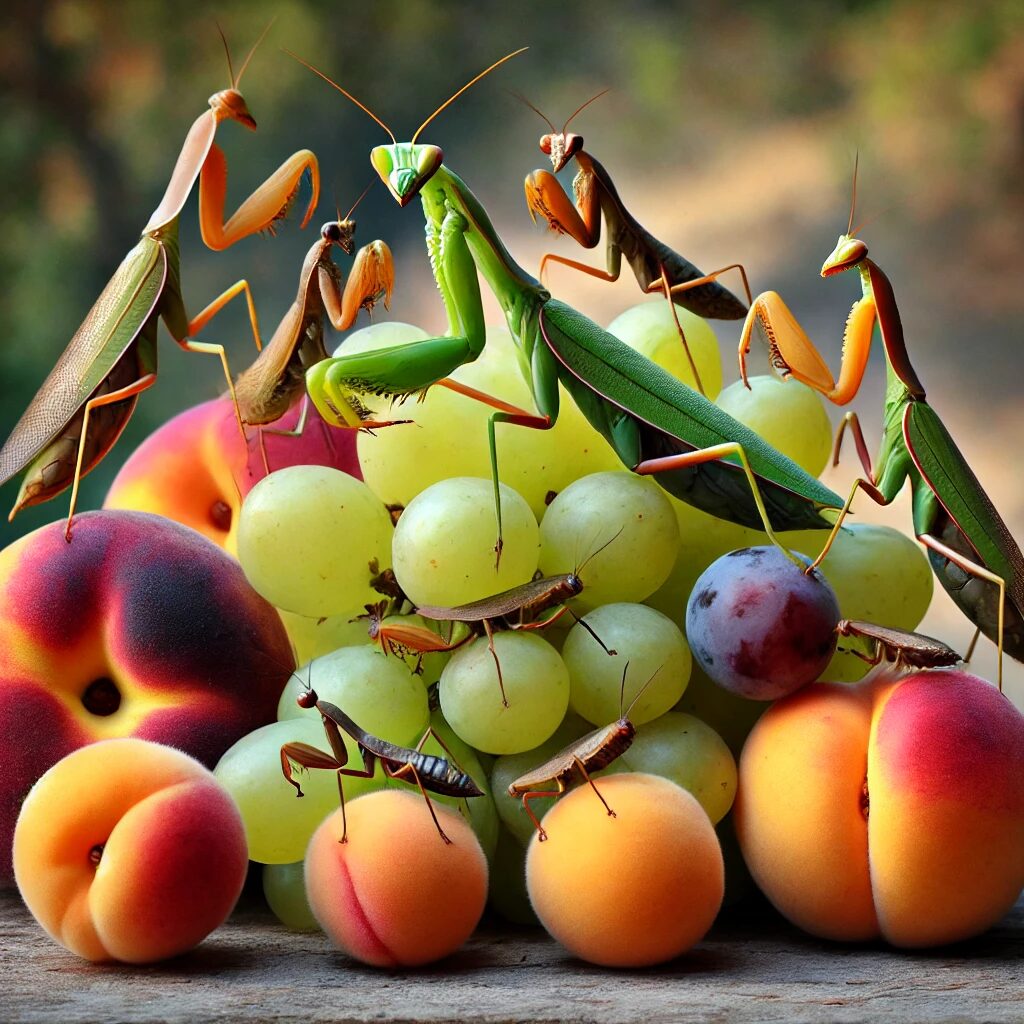
- Role: Praying mantises are natural predators that prey on adult fruit flies.
- Fruits Protected: Grapes, Peaches, Apricots
- How They Help: Praying mantises stay still, waiting for their prey to come close. When fruit flies buzz nearby, they quickly capture and consume them, providing an effective solution for protecting ripening fruits.
Tips for Attracting Fruit Fly Natural Predators
If you want to naturally control fruit flies in your garden, you’ll need to make your garden attractive to these predators. Here are some tips:
- Provide Shelter: Create inviting habitats by planting shrubs, flowers, and even better, adding birdhouses to attract birds and other predators.
- Avoid Pesticides: Refrain from using insecticides, as they can harm beneficial insects like ladybugs, hoverflies, and parasitic wasps.
- Use Protein Baits: Protein-based baits can be used to attract and trap fruit flies, making it easier for predators to capture them.
- Install Pheromone Traps: Pheromone traps are useful for monitoring fruit fly infestations. They can help attract male and female fruit flies, making them easy prey for natural predators.
- Add a Pond: Dragonflies thrive around water, so adding a pond can help attract these beneficial predators to your garden.
- Prune Regularly: Remove infected or rotting fruits and prune tree branches to reduce breeding sites. This helps in controlling fruit flies and makes your garden less susceptible to infestations.
Conclusion
Natural predators are an essential part of a balanced ecosystem, helping keep fruit flies and other pests under control.
These natural allies, such as ladybugs, spiders, dragonflies, and more, play an essential role in keeping your garden healthy and balanced.
So, consider enhancing your garden with habitats for these beneficial creatures and let nature take care of the rest for a more abundant and pest-free harvest.
